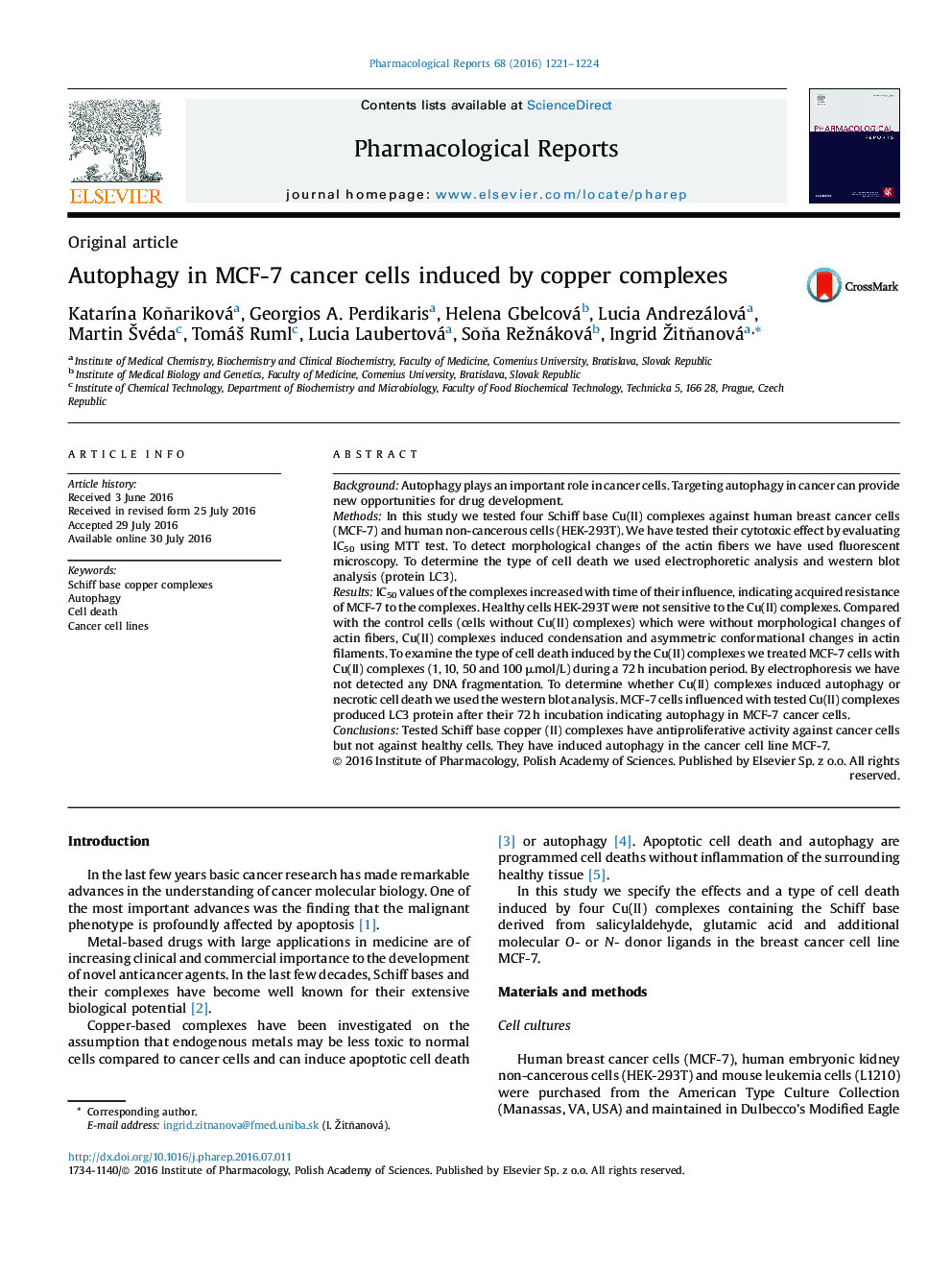| Article ID | Journal | Published Year | Pages | File Type |
|---|---|---|---|---|
| 6481718 | Pharmacological Reports | 2016 | 4 Pages |
â¢IC50 values of Cu(II) complexes tested on MCF-7 cancer cells increased in a time- dependent manner.â¢Noncancer cells were not sensitive to Cu(II) complexes.â¢In MCF-7 cells Cu(II) complexes induced condensation and asymmetric conformational changes in actin filaments.â¢Cu(II) complexes did not induce apoptosis in MCF-7.â¢Cu(II) complexes induced autophagy in MCF-7.
BackgroundAutophagy plays an important role in cancer cells. Targeting autophagy in cancer can provide new opportunities for drug development.MethodsIn this study we tested four Schiff base Cu(II) complexes against human breast cancer cells (MCF-7) and human non-cancerous cells (HEK-293T). We have tested their cytotoxic effect by evaluating IC50 using MTT test. To detect morphological changes of the actin fibers we have used fluorescent microscopy. To determine the type of cell death we used electrophoretic analysis and western blot analysis (protein LC3).ResultsIC50 values of the complexes increased with time of their influence, indicating acquired resistance of MCF-7 to the complexes. Healthy cells HEK-293T were not sensitive to the Cu(II) complexes. Compared with the control cells (cells without Cu(II) complexes) which were without morphological changes of actin fibers, Cu(II) complexes induced condensation and asymmetric conformational changes in actin filaments. To examine the type of cell death induced by the Cu(II) complexes we treated MCF-7 cells with Cu(II) complexes (1, 10, 50 and 100 μmol/L) during a 72 h incubation period. By electrophoresis we have not detected any DNA fragmentation. To determine whether Cu(II) complexes induced autophagy or necrotic cell death we used the western blot analysis. MCF-7 cells influenced with tested Cu(II) complexes produced LC3 protein after their 72 h incubation indicating autophagy in MCF-7 cancer cells.ConclusionsTested Schiff base copper (II) complexes have antiproliferative activity against cancer cells but not against healthy cells. They have induced autophagy in the cancer cell line MCF-7.
